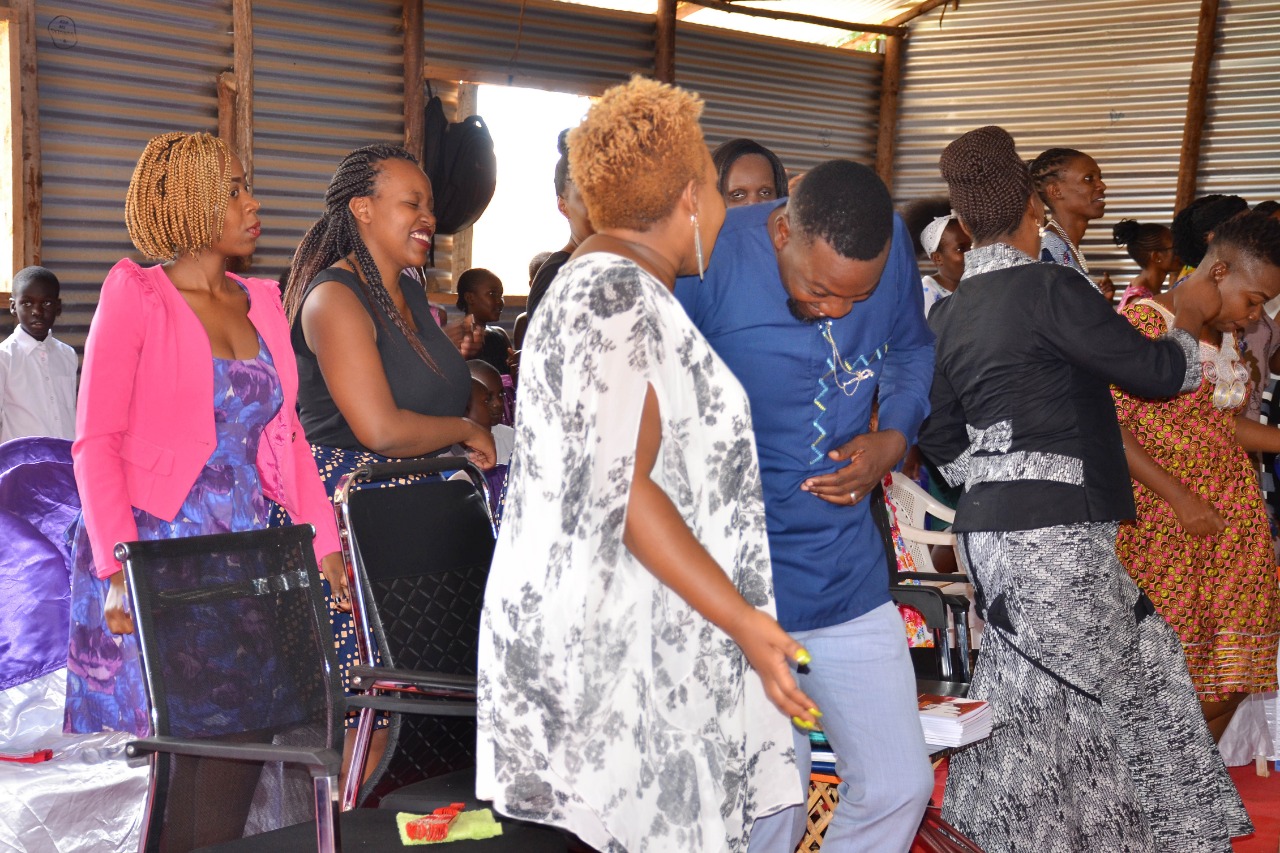Share this
Kenya is a largely religious country with about 85.5 per cent of the population professing the Christian faith, 10.9 % Muslim, and 1.8 % other faiths. Most of these religious activities are grounded around group fellowships and as such their activities were greatly hampered by the government’s ban on public gatherings at the onset of the Covid-19 pandemic in Kenya.
Pastor Pius Buodo runs an evangelical ministry in Kisumu. He says that as the virus swept across the world, there was a growing fear among his congregants at the Glorious Covenant Church and at the time there was very little those in his position could do to calm their fears.
“The way this pandemic has been portrayed by the media has brought it so much fears in the lives of people…it will take some time for people to come out of that fear,” he says.
In response to this, Pastor Buodo says he is now focusing on building his congregant’s faith to overcome these fears.
Reduced attendance
Church services attendance has gone down by over 50% since the relaxation of containment measures. He says quite a significant number of believers have lost their faith in the process.
He says that regular church attendance allowed congregants to be pastored and more accountable to their church leaders as opposed to the situation under lockdowns. In the process he explains that “many went back to the world” because not everyone had access to the internet for live church services via digital platforms.
Christian Atieno, another resident of the lakeside City agrees that the ban on gatherings has affected people’s faith.
“There is that fire people had for Jesus that was built through morning and evening fellowships, that has gone down. Christianity isn’t just about the Sunday worship, so when people could no longer worship this way they were finding themselves creating time for other pursuits which are not necessarily christian-like,” she explains.
We are built for fellowship.
Pst. Pius Buodo, Glorius Covenant Church
Threats to ministries
Various religious organizations across the board have been hit with a financial crisis as a result of the pandemic. Reduced church (and other religious places) attendance has also meant a reduction in offerings and tithes that many of these religious establishments use to further their activities. To some extent, a crumbling economy as explained in previous parts of this series has meant that people have less to give too.
Not all doom
Restrictions to in-person attendance of religious services also allowed some people to get closer to God through online worship services.
“Being online allowed people who were not even our members to discover and worship with us. We were giving hope that people who were not even previously religious were in need of at that time. This happened to other ministers too. There were also people in churches that did not allow them to grow in faith and others that discovered that they were in the wrong churches,” he explains.
I have never been a pastor during a pandemic. I don’t think any other minister in our lifetime has….we have never pastored during lockdowns.
Pst. Pius Buodo, Glorious Covenant Ministries
Opportunities
If there is one lesson that has come out of this pandemic for religious people, it is that the Kenyan Christian needs to be socialised not to depend so much on the clergy. God does not live in church but is everywhere. No clergyman has the monopoly and direct line to God. God lives in our minds and hearts. We can have a church with ourselves and our families.
Dr Damaris Parsitau, a religious researcher says “this time calls for many ways of being. It calls on us to deinstitutionalise faith and rethink innovative ways of being spiritual communities. It calls on us to decentralise the role of clergy that does not think about us but about themselves. It calls on us to give science a chance, even as we continue to pray and hope and take care of each other. Taking care of each other is a spiritual exercise. This is the time to be good neighbours. This is the time for us to think about compassion and empathy, After all, science and faith are not in contradiction with each other.”
In developed countries, pastors have been at the forefront of ministering to their congregations at home. Many have come up with innovative ways of being Christian in the age of the coronavirus.
Dr Damaris Parsitau, lecturer and researcher in religious studies.





